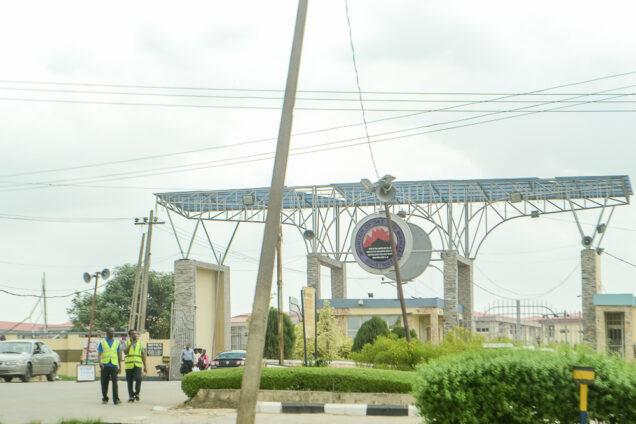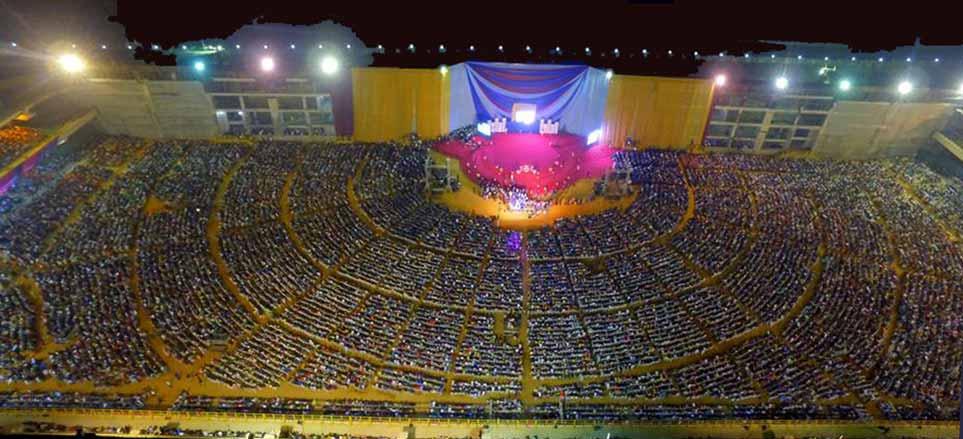Wealth Profile Of The Apostolic Church Nigeria

The Apostolic Church Nigeria (TACN) stands tall among the most prominent and enduring Pentecostal denominations in Nigeria. With its roots tracing back to 1918, TACN has grown into a powerful spiritual, cultural, and economic force. As one of the oldest indigenous Pentecostal churches in the country, its growth over the last century has not only been spiritual but also infrastructural and financial.
In this blog post, we’ll take an in-depth look at the wealth profile of The Apostolic Church Nigeria—an institution with millions of followers, extensive property holdings, educational investments, and one of the world’s largest church auditoriums. Let’s explore how this church has built and sustained its legacy of wealth.
A Brief Historical Overview
The origins of TACN lie in a prayer group known as the “Precious Stone” society in Ijebu-Ode. The group eventually merged with The Apostolic Church in the United Kingdom, marking the official birth of TACN. With time, the Nigerian branch developed into an autonomous body, establishing its headquarters in Olorunda-Ketu, Lagos State.
From a small group of worshippers to over 4.5 million members nationwide as of 2018, TACN's growth has been nothing short of phenomenal. Its national and regional structures, spiritual authority, and organizational discipline have all played key roles in shaping the church’s long-term success.
Membership and Financial Contributions
One of the pillars of TACN's wealth is its enormous membership base. With millions of followers across Nigeria, the church receives regular financial support through tithes, offerings, donations, and fundraising efforts.
Unlike some churches that rely heavily on external funding or sponsorship, TACN is largely self-sustained. The unwavering financial commitment of its members ensures a steady inflow of funds, which is reinvested in infrastructure, social projects, and administrative functions.
The Magnificent National Temple
Perhaps the most iconic symbol of TACN’s financial strength is its National Temple in Olorunda-Ketu, Lagos. The temple was commissioned on December 4, 2011, after more than three decades of construction. With a seating capacity of 100,000, it ranks among the largest church buildings in the world.
The sheer scale and architectural brilliance of the National Temple are a reflection of the church’s wealth, vision, and commitment to excellence. While the church has never officially disclosed the total cost of the project, experts estimate it to be in the billions of naira.
The temple has become a national landmark—not just for religious purposes, but also as a testament to indigenous financial planning, unity, and long-term vision.
Diversification Through Education
Another cornerstone of TACN’s wealth is its investment in education. In 2011, the church established Samuel Adegboyega University in Ogwa, Edo State. Named after the church’s first LAWNA territorial chairman, the university was approved by the National Universities Commission (NUC).
In 2022, the institution was renamed Glorious Vision University, aligning more closely with the church’s spiritual mission. The university represents a valuable asset in the church’s portfolio, offering not only long-term financial returns but also serving as a platform for grooming future leaders.
This move into the academic sector demonstrates TACN’s commitment to nation-building and economic diversification beyond the pulpit.
Prudent Leadership and Financial Management
TACN's sustained financial growth can be largely attributed to its well-structured leadership. In February 2025, the church elected a new leadership team to steer its national affairs. Pastor Dr. Lawrence O. Oladele was elected as the new National President, succeeding Pastor S.E. Igwe.
The election and peaceful transition of power reflect the church’s maturity and operational stability—two essential elements for any institution seeking long-term growth. New leaders often bring fresh perspectives to financial and administrative strategies, ensuring continued development.
Modest Clergy Compensation
Interestingly, despite the church’s substantial wealth, TACN does not appear to be overly focused on enriching its clergy. According to data from MySalaryScale, the average salary of a pastor in the church is around ₦13,000 per month.
This modest compensation structure suggests that the church prioritizes community development, mission work, and infrastructural expansion over lavish pastoral salaries. It is a reminder that TACN’s values remain deeply rooted in humility, service, and collective growth.
Estimated Net Worth and Financial Position
Although financial figures are not always disclosed publicly by religious organizations, available data estimates TACN’s net worth to be around $8.33 million as of December 2024. While this is a conservative estimate (considering the church’s vast properties and investments), it provides a glimpse into the church’s financial capability and upward trajectory.
It’s also worth noting that this estimate may not fully account for the value of its fixed assets like the National Temple, university, and thousands of local assemblies and mission houses spread across Nigeria.
Comparison with Other Nigerian Churches
In the highly competitive and influential landscape of Nigerian Pentecostalism, TACN maintains a respectable position in terms of financial strength. For example, the Christ Apostolic Church, Agbala Itura, led by Prophet Samuel Abiara, is believed to have assets worth over ₦7 billion.
Despite not topping the list of the richest churches in Nigeria, TACN’s financial portfolio is one of stability, consistency, and integrity. Unlike some newer churches that have achieved wealth rapidly, TACN has taken the route of sustainable, organic growth.
Conclusion: A Church Built to Last
The Apostolic Church Nigeria exemplifies how a faith-based organization can build generational wealth without losing its core values. Through its vast membership, visionary leadership, educational ventures, and symbolic projects like the National Temple, TACN continues to influence both the spiritual and economic spheres in Nigeria.
Its wealth is not just in currency or infrastructure—but in the millions of lives transformed, the communities built, and the future leaders molded under its umbrella. With over a century behind it, TACN remains a symbol of what strategic faith-driven development can achieve in Nigeria and beyond.
Post A Comment
Your email address will not be published. Required fields are marked *









































































































































0 Comments